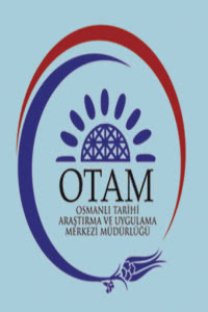Venedik Devlet Arşivindeki Bailo Defterlerine Göre Osmanlı Devleti'nin Venedik'e Zahire ve Asker Yardımı (1624-1631)
Osmanlı Devleti ile Venedik arasındaki ilişkiler 14. yüzyıla kadar uzanmakla beraber, daha geniş ilişkiler Fatih dönemi ile gelişmiştir. İki ülke arasındaki ilişkiler hem siyasî hem de iktisadî esaslara dayanıyordu. Osmanlı Devleti, Batının bu en güçlü denizci tüccar devletinin gücünü yanına almak isterken aynı zamanda ihtiyacı olan emtianın düzenli olarak ülkesine girişini sağlamak istiyordu. Venedik de daha Bizans ve Selçuklu dönemlerinde Doğuda ticaret yapmak için aldığı imtiyazları kaybetmek ve hele bu imtiyazları rakibi olan diğer denizci devletlere kaptırmak istemiyordu. Osmanlı-Venedik arasındaki bu karşılıklı iyi ilişkiler 16. yüzyılın sonlarında 1571de Kıbrısın Osmanlılar tarafından fethedilmesiyle kesintiye uğradıysa da kısa bir süre sonra yukarıda zikredilen karşılıklı mecburiyetlerden dolayı yeniden başladı. Bundan sonra Venedik Osmanlı Devleti için Hıristiyan ülkeler arasında himayeye en fazla layık ülke statüsüne yükseldi, Osmanlı Devletinin en sadık dostu oldu. 1624-1631 yılları arasında Avrupada Otuz Yıl Savaşlarının devam ettiği sürede Đspanya-Avusturya ittifakının tehdidinde kalan Venedik, Osmanlı Devletinden yardım talebinde bulundu. Osmanlı iktisat politikasının temeli olan iaşe-provizyonizmin temini için sıkı sıkıya bağlı olduğu zahire ihracının memnuiyeti prensibini bir tarafa bırakarak, Rumelideki eyalet ve sancak beylerine gönderilen fermanlarla Venedike ihtiyacı kadar günün rayici üzerinden istediği kadar zahirenin satılmasına izin vermiştir. Đspanya ve Avusturyanın saldırılarının devam etmesi üzerine Venedik, Osmanlı Devletinden asker talebinde bulunmuştur. Osmanlı Devleti yukarıda zikredilen mülahazalarla, Osmanlı Devleti, Osmanlı Devletini Rumeli sancaklarında ücreti karşılığında gönüllü olarak Venediklilerin hizmetine girmek isteyen Müslim veya gayr-i Müslim halkın cenkçi (savaşçı) yazılmasına ruhsat vermiş ve buna kimsenin mani olmaması hakkında ilgililere gerekli tenbih yapılmıştır. Hem dışarıya zahire ihracı hem de ülkesinden paralı asker yazılmasına izin vermiş olması, Osmanlı Devletinin bilinen siyaset ve iktisat politikalarına tamamen aykırı idi. Bu durum ancak Osmanlı Devletinin ileri görüşlü devlet anlayışı ile izah edilebilir. Bize göre Osmanlı Devletinin bu politikası, tehdidin, kendi sınırlarına gelmeden önce yok edilmesi demek olan sınır ötesi tahkim doktrinidir.
The Ottoman Empires Military and Store of Grain Aid to Venetian Regarding to Bailo Registers in Venice State Archive (1624-1631)
Although the relationship between the Ottoman Empire and Venice State lenghtened till the 14th century more developed extensive relations occured within the period of Fatih. The relations between the two countries based on both political and economic principles. On the one hand, while the Ottoman Empire had been trying to establish the most powerful state in the menchant marine in the West, at the same time she desired to ensure the entry of goods which was needed regulary; on the other hand Venice State did not want to loose the right of trade in the East which was taken in the period of Byzantine and Seljuq and also she did not want to loose these privileges to rival sailor states. Although these mutual good relations between the Ottomans and Venice have been interrupted due to the conquest of Cyprus by the Ottoman State in 1571, 16th century, the mutual relations between the states started again because of the above-mentioned obligation of the two states. After this, Venice had the Ottoman State rose the worthy statues of the most loyal and the most patronage state among the Christian countries. While the Thirty Years War was continuing in Europe, Venice, between 1624-1631, came across the threat of Spanish-Austrian alliance and so he appealed for help from the Ottoman State. Although the Ottoman State left the principle of the foundation of the Ottoman economic policy board-provizyonizm in supplly is tightly linked to the principle of prohibition of exports of garain, the Ottoman State gave permission for the sale of grains to Venice by way of imperial order to the Begs of state and districts in Rumeli. Venice might take the grains as much as she needed in the value of daily price. Venice claimed soldiers from the Ottoman State due to the fact that the continuation of attacks to Venice by Spain and Austria continued. With the assessment above-mentioned, the Ottoman State gave the right of becoming warrier in the Venice to the volunteer Muslim and the voluntieer non-Muslim people who waned to enter in the district an in the state of Rumeli. The Ottoman State has given written authorization requered warned that no one was concerned about this order. The decision of giving permission to grain export out of the country as well as mercenaries written is completley contrary to the known policies of the politics and economics of the Ottoman State. However, thiss case can be explained by the Ottoman States foresighted policy. In our view, this policy of the Ottoman State is called as the doctrine of the cross-border arbitration which means the destruction of the limits of the threat.
___
I. Venedik Devlet Arşivi (Archivio di Stato di Venezia - ASVe) Busta 13, Belge 1367. Carte Turche, 251, Dosya 334. Carte Turche, 251, Dosya 335. Carte Turche, 251, Dosya 337.
II. Tetkik Eserler AKDAĞ, Mustafa, Türkiyenin Đktisadî ve Đçtimai Tarihi II, Ankara 1972.
BAYKAL, Bekir Sıtkı, Yeni Zamanda Avrupa Tarihi, 2. baskı, TTK Yay., Ankara 1988.
BOSTAN, Đdris, Adriyatikde Korsanlık Osmanlılar Uskoklar Venedikliler 1575-1620, Timaş Yay., İstanbul 2009.
BRACEWELL, Catherine Wendy, 16. Yüzyılda Adriyatikte Korsanlık ve Eşkiyalık Senjli Uskoklar, (çeviren: Mehmet Moralı), Bilgi Üniv. Yay., İstanbul 2009.
GENÇ, Mehmet, Osmanlı Đmparatorluğunda Ekonomi ve Devlet, Ötüken Yay., Đstanbul 2000.
I Documenti Turchi DellArchivio di Stato di Venezia, Inventario della miscellanea a cura di Maria Pia Pedani Fabris, con ledizione dei regesti di Alessio Bombaci, Roma 1994.
İNALCIK, Halil, Đmtiyazat, EĐ, III, Leiden, Briell 1979.
ÖZTÜRK, Mustafa, Tarih Felsefesi, 2. Baskı, Ankara 2010.
TURAN, Şerafettin, Türk Đtalya Đlişkileri-Selçuklulardan Bizansın Sona Erişine, Ankara 1990.
